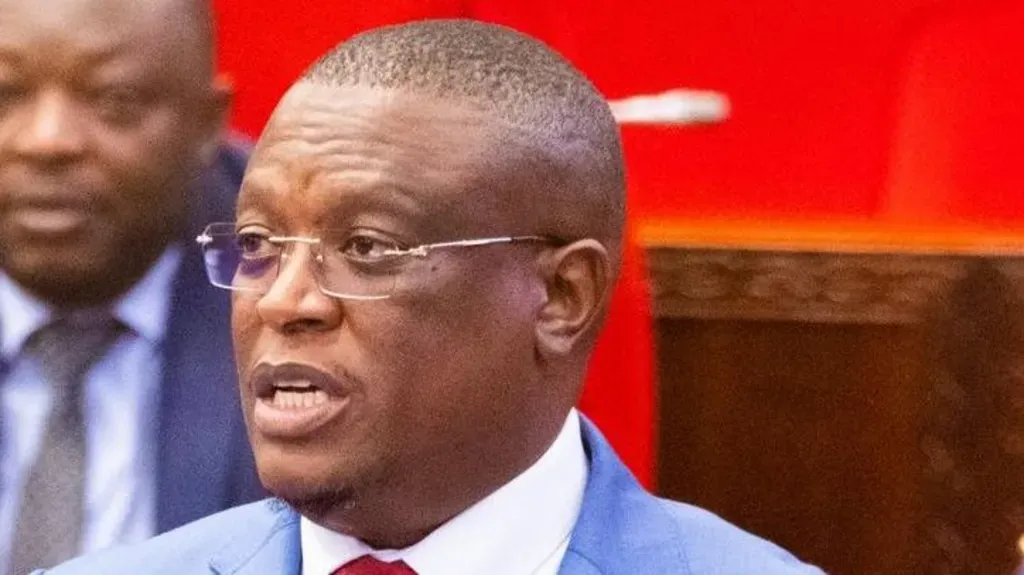In a significant political development in Tanzania, the country’s Information Minister, Nape Nnauye, has been dismissed from his position following a series of controversial comments regarding election integrity. His remarks, which have sparked widespread outrage and debate, revolve around the possibility of rigging elections. This event has not only highlighted issues of political transparency but also triggered a cabinet reshuffle by President Samia Suluhu Hassan.
The Controversial Remarks
A Troubling Speech
On July 15, 2024, Nape Nnauye, then Information Minister, made a speech at a rally in Bukoba, a city in northern Tanzania. During this event, he discussed his intentions to assist a fellow ruling party MP in the 2025 elections. His comments, recorded on video, suggested that election outcomes could be manipulated. Nnauye said, “Election results are not necessarily those in the [ballot box], rather they depend on the person counting and making announcements.” He further mentioned, “Because I’m good at election tricks, I will assist to emerge victorious.”
Nnauye elaborated on his methods, stating that there are “legal, half legal, and illegal” ways to ensure a win, and he added, “All of them could be used provided after the conclusion you seek God’s forgiveness.” These statements have been interpreted as an admission of willingness to engage in electoral manipulation.
Public Backlash
The video of Nnauye’s speech quickly went viral, eliciting a strong reaction from the public. Many Tanzanians viewed his comments as a severe breach of democratic principles and an affront to the integrity of the electoral process. His statements were seen as undermining the very foundation of free and fair elections, a cornerstone of democratic governance.
In response to the public outcry, Nnauye attempted to clarify his remarks, claiming they were made in jest. However, this explanation did little to quell the widespread criticism. The controversy intensified as the implications of his statements continued to resonate with voters and political analysts alike.
The Presidential Response
Cabinet Reshuffle
In light of the controversy, President Samia Suluhu Hassan decided to remove Nnauye from his role as Information Minister. This decision was part of a broader cabinet reshuffle announced on Sunday. The president did not provide specific reasons for the dismissal, but it is widely understood that Nnauye’s comments played a significant role in her decision.
President Hassan’s action reflects her administration’s commitment to addressing issues related to political integrity and public trust. The dismissal of Nnauye underscores the seriousness with which the government views the matter of electoral fairness and the need for transparency in public office.
Replacement and Further Changes
Nnauye’s position will be filled by Jerry Slaa, a former Minister of Land and Housing Development. Slaa, a seasoned politician, is expected to bring a new perspective to the role and contribute to restoring confidence in the information ministry.
Additionally, Foreign Minister January Makamba has also been removed from his position. He will be succeeded by Mahmoud Thabiti Kombo, Tanzania’s Ambassador to Italy. These changes reflect a broader realignment within the government, aimed at strengthening leadership and addressing public concerns.
Historical Context and Previous Controversies
Nnauye’s Political Career
Nape Nnauye has been a notable figure in Tanzanian politics for many years. His career with the ruling party, Chama cha Mapinduzi (CCM), dates back to his school days. He was first appointed as Information Minister by the late President John Magufuli but was removed in a subsequent reshuffle. President Samia reappointed him in January 2022, highlighting his continued influence within the party.
Past Controversies
Nnauye’s career has not been without controversy. During the 2015 elections, he made a statement using a football analogy, saying the CCM party would win “by all means,” even if it meant resorting to a “handball goal.” This comment further fueled accusations of election malpractice and undermined public confidence in the electoral process.
CCM’s Long Reign
The CCM party, founded in 1977, has been one of Africa’s longest-reigning political parties. Despite its long tenure in power, the party has faced numerous allegations of election fraud and state repression. Opposition leaders have frequently criticized the CCM for undermining democratic processes and manipulating election outcomes.
Implications and Moving Forward
Impact on Democratic Processes
The dismissal of Nape Nnauye and the associated controversy highlight the ongoing challenges facing Tanzanian democracy. Ensuring electoral integrity and restoring public trust are critical issues that need to be addressed. The government’s response to these challenges will play a crucial role in shaping the future of Tanzanian politics.
Public Perception and Trust
The public’s reaction to Nnauye’s comments and the subsequent actions by President Hassan reflect a deep concern for maintaining democratic principles. The response from Tanzanians indicates a desire for transparency and accountability in political processes, underscoring the need for reforms and stronger safeguards against electoral manipulation.
Future Political Landscape
As Tanzania moves forward, the political landscape will likely be influenced by the current events and the government’s efforts to address them. The appointment of new ministers and the emphasis on restoring public confidence will be closely watched by both domestic and international observers.
Conclusion
The dismissal of Nape Nnauye from his role as Tanzania’s Information Minister marks a significant moment in the country’s political landscape. His controversial remarks about election rigging and the subsequent public outcry have led to a cabinet reshuffle and raised important questions about electoral integrity and democratic governance.
As Tanzania navigates these challenges, the focus will be on ensuring that democratic principles are upheld and that public trust in the political system is restored. The steps taken by the government and the responses from various stakeholders will be critical in shaping the future of Tanzanian democracy and political stability.


